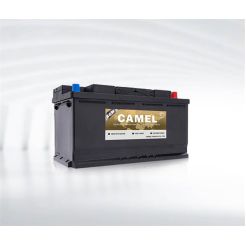H4500 Articulated Boom Truck Crane
3.53m minimum driving height for easy entry into old factory buildings
Product Description
Related Products:Flatbed Skeleton Low Bed Semi Trailer, 12 Axis Low Bed for Disaster Relief, 12-Axis Low Bed for Mining Gear for sale
Articulated Boom Truck Crane Advantages
1. 3.53m minimum driving height for easy entry into old factory buildings;
2. Eight hydraulic telescopic arms are equipped with two manual arms to meet the needs of large-scale operations;
3. Standard electronic torque limiting system, dedicated to lifting operations, safe and worry free;
4. Equipped with wireless remote control leg control as standard, the operation is more convenient;
5. Equipped as standard with hydraulic telescopic support legs for large span foundations, ensuring operational stability;
H4500 Articulated Boom Truck Cranes Parameters
|
Key parameter values |
values |
|
Rated lifting weight (kg) |
92000 |
|
Rated lifting torque (t. m) |
450 |
|
Maximum working amplitude (m) |
23.8 |
|
Maximum lifting height (m) |
27.1 |
|
Number of Boom Sections (Section) |
8 |
|
Maximum elevation angle (°) |
75 |
|
Rotation angle (°) |
360 |
|
Leg span (mm) |
7948/7939 |
|
System displacement (L/min) |
108 |
|
Crane self weight (kg) |
53000 |
|
System rated pressure (MPa) |
33 |

What is the difference between a boom truck and a truck crane?
Boom Truck:
Definition:
A boom truck is a commercial truck with a mounted hydraulic crane. The crane typically features a telescopic or articulating boom.
Primary Use:
Designed for lighter lifting tasks and general utility work.
Commonly used in industries such as utilities, telecommunications, and light construction.
Boom Type:
Usually has a telescopic boom, which extends and retracts in sections.
Some models may have an articulating boom, which consists of multiple sections connected by joints, allowing for a variety of movements and positioning.
Mobility:
Mounted on a standard commercial truck chassis, allowing for easy road travel and transport to various job sites.
Generally, more agile and can be driven like a regular truck when the boom is not in use.
Capacity:
Lower lifting capacity compared to truck cranes, typically ranging from a few tons up to around 15-20 tons.
Applications:
• Lifting light to moderately heavy loads.
• Utility work such as lifting transformers or power line installations.
• Signage installation and maintenance.
• Light construction tasks and material handling.
Examples:
Utility trucks with booms for installing and repairing power lines.
Trucks with booms used for placing signs or lifting light construction materials.
Truck Crane:
Definition:
A truck crane is a type of crane mounted on a truck chassis, designed for heavier lifting tasks. It often has more advanced lifting capabilities compared to boom trucks.
Primary Use:
Suitable for heavier construction and industrial lifting tasks.
Used in large-scale construction projects, heavy material handling, and infrastructure development.
Boom Type:
Typically equipped with a telescopic boom, but some models may have lattice booms for specific applications.
Telescopic booms can extend to greater lengths compared to those on boom trucks.
Mobility:
Also mounted on a truck chassis, but these trucks are specifically designed to handle the additional weight and requirements of the crane.
Can travel on public roads, but may require special permits due to size and weight.
Capacity:
Higher lifting capacity than boom trucks, often ranging from 20 tons to over 100 tons.
Designed to handle significantly heavier loads and perform more demanding lifting tasks.
Applications:
Heavy construction projects such as building bridges, high-rise buildings, and large industrial facilities.
Transport and logistics for loading and unloading heavy cargo.
Infrastructure projects like highway construction and maintenance.
Examples:
Truck cranes used in constructing large commercial buildings or bridges.
Cranes used for heavy-duty lifting in industrial facilities.
Email: hlw406048271@163.com
Mob.: +86 182 5312 0695
WeChat: +86 186 5311 1430
Whatsapp: +8618253120695
Whatsapp: +8618668937260
Add.: No. 4002-13, Building M7, Yellow River Digital Industry Center, Cuizhai Street, Starting District, Jinan City, Shandong Province.











